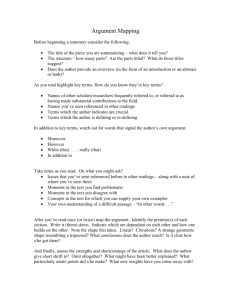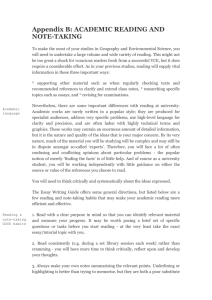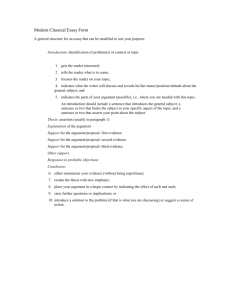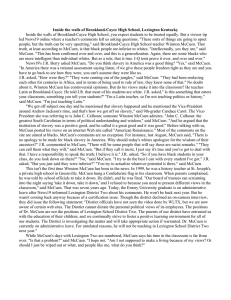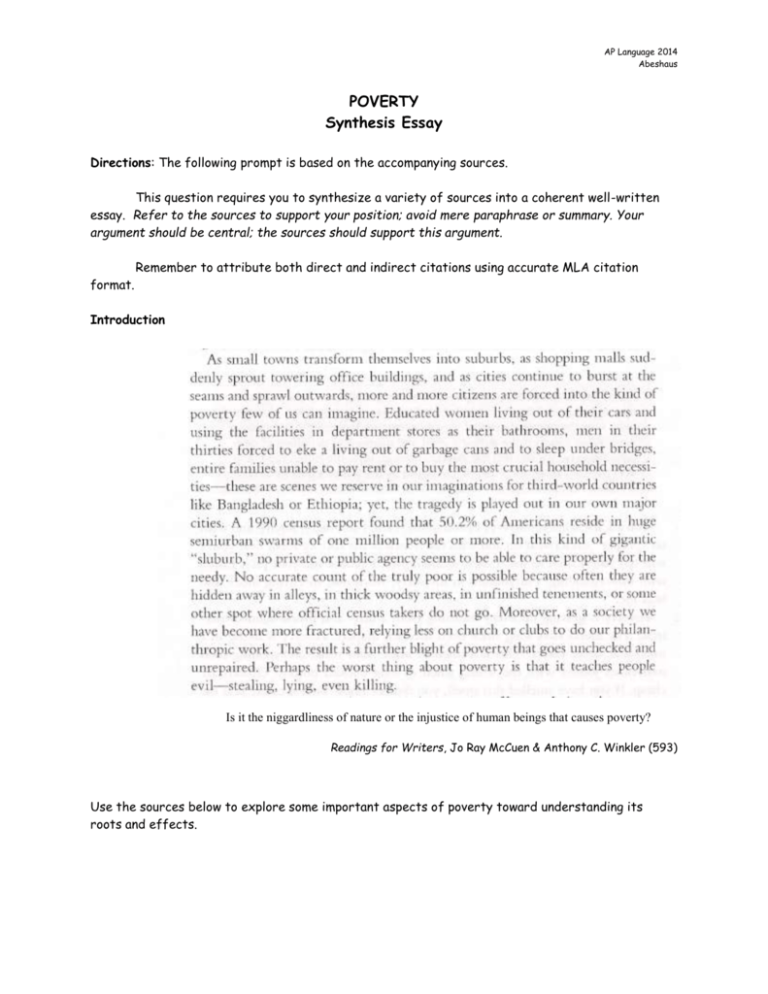
AP Language 2014
Abeshaus
POVERTY
Synthesis Essay
Directions: The following prompt is based on the accompanying sources.
This question requires you to synthesize a variety of sources into a coherent well-written
essay. Refer to the sources to support your position; avoid mere paraphrase or summary. Your
argument should be central; the sources should support this argument.
Remember to attribute both direct and indirect citations using accurate MLA citation
format.
Introduction
Is it the niggardliness of nature or the injustice of human beings that causes poverty?
Readings for Writers, Jo Ray McCuen & Anthony C. Winkler (593)
Use the sources below to explore some important aspects of poverty toward understanding its
roots and effects.
AP Language 2014
Abeshaus
Assignment
Read the following sources (including any introductory information) carefully. Then, in an essay
that synthesizes at least five of the sources for support, take a position either 1) on what
contributes to poverty OR 2) on what solutions are available for addressing poverty. Be sure to
define abstract terms and to provide a clear focus to your argument. Note: your actual focus is up
to you; just make sure that you narrow the scope of your argument to a manageable size and that
you do not oversimplify. Avoid sweeping generalizations and broad unsupported claims!
Learning Objectives:
Argue: create a clear and focused argument, supporting your claims with valid and
appropriate evidence
Organizational Options
o Yes/No . . . Then list examples (Agree/Disagree)
o (Re)Definition of key term in prompt
o Consequence: defining the consequences of the issue at hand
o Yes . . . But (qualified argument)
o Narrative (not appropriate for an entire argument essay)
Analyze and Evaluate Sources: determine the credibility and applicability of various
assigned sources
Synthesize: pull pertinent and credible information from multiple sources into one coherent
argument
The standard essay criteria applies:
1.
2.
3.
4.
5.
6.
Thematic statement: with a subject as broad as poverty, you need to focus on one specific
angle of the problem. That angle is completely up to you as long as you specify your
parameters.
a. Briefly set the context, providing any relevant background information
b. Identify the argument, indicating your stand (even if by implication). Identify a
clear focus.
c. Indicate your organization
Summarize the argument and build argument as presented by sources (without
editorializing). Create a strong chain of reasoning.
Support each step in your argument with evidence from your sources. Don’t just refer to
sources; use quotes to validate claims.
Analyze sources in terms of how their argument is presented (rhetorical strategies,
appeals, etc.)
Evaluate effectiveness of article(s)
MLA Citations
a. In-text parenthetical Citations (with page numbers) (Abeshaus 239)
b. ANNOTATED WORK CITED AND CONSULTED, including an annotation for all
required readings
DUE: October 13, 2013
AP Language 2014
Abeshaus
Readings
Deadline
Reading
9/18 I: 1-4
9/15 I:5-8 &
II: 1
9/22 II: 2-8
9/29 III: 1-8
Boyle, T. C. Tortilla Curtain. NY: Penguin, 1996. Print.
9/11
Parker, Jo Goodwin. “What is Poverty?” Readings for Writers.
8th ed. Eds. Jo Ray McCuen and Anthony C. Winkler. Fort
Worth: Harcourt Brace, 1995. 594-7. Print. (WR)
Perkins, Joseph. “Homeless: Expose the Myths.” Readings for
Writers. 8th ed. Eds. Jo Ray McCuen and Anthony C.
Winkler. Fort Worth: Harcourt Brace, 1995. 599-600.
Print. (WR)
Orwell, George. “Why Are Beggars Despised? About.com:
Grammar and Composition. 1933. Web. Oct. 2010. (WR)
Ehrenreich, Barbara. “Nickel-and-Dimed: On (not) getting by in
America.” Harper’s. Jan. 1999: 37-52. Print. (WR)
9/16
9/19
9/22
Long!!!!
9/24
9/25
9/30
10/1
10/3
10/7-8
10/9
Discussion Leader
Kozol, Jonathan. “Are the Homeless Crazy?” Harper’s. Sept.
1988: 17-19. Print. (WR)
Eighner, Lars. “Dumpster Diving.” 230-239. Source Unknown,
1992. Print. (WR)
Singer, Peter. “The Singer Solution to World Poverty.” The
Prentice Hall Reader, 8th ed. Ed. George Miller. Upper
Saddle River, NJ: Pearson/Prentice Hall, 2007. Print.
(WR)
Dream Board assignment
Hardin, Garrett. “Lifeboat Ethics: The Case against Helping the
Poor.” The Language of Composition. Eds. Renee H. Shea,
Lawrence Scanlon, and Robin Dissin Aufses. Boston:
Bedford/St. Martin’s, 2008. 324-333. Print. (WR)
Gorski, Paul. “The Myth of the Culture of Poverty.” Educational
Leadership Apr. 2008: 32-36. Web. Oct. 2010. (WR add)
Sachs, Jeffrey D. “The End of Poverty, Soon.” Time 24 Sept.
2013. Print. (WR)
Additional Resources
Dell, Floyd. “We’re Poor” Readings for Writers. 8th ed. Eds. Jo Ray McCuen and Anthony C. Winkler. Fort
Worth: Harcourt Brace, 1995. 286-89. Print. Optional
Homeless in America. Dir. Tommy Wiseau. Perf. Tommy Wiseau, Greg Sestaro. Wiseau Films, 2004. Film.
Optional.
Shepherd, Adam. “Introduction.” Scratch Beginnings. New York: Harper’s, 2008. Print.
Walls, Jeannette. The Glass Castle. New York: Scribner, 2005. Print.
AP Language 2014
Abeshaus
TED Talks (listed in the order we watched them)
Bono. “The good news on poverty (Yes, there's good news).” TED. Feb. 2013. Lecture.
Singer, Peter. “They why and how of effective altruism.” TED. Mar. 2013. Lecture.
Novogratz, Jacqueline. “An escape from poverty.” TED. Feb. 2009. Lecture.
Jacklley, Jessica. “Poverty, money—and love.” TED. Jul. 2010. Lecture.
Duflo, Esther. “Social experiments to fight poverty.” TED. Feb. 2010. Lecture.
Sheeran, Josette. "Ending Hunger Now". TED. July 2011. Lecture.


